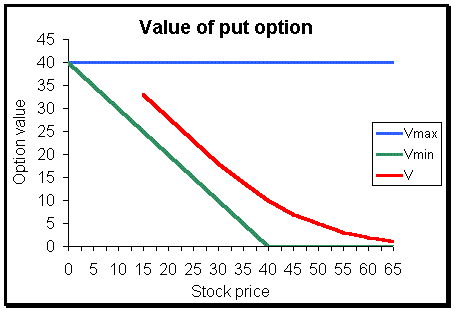Contents
After the acceptance of shares by the company, the applicant becomes shareholders in the company, and they get the voting right on the matters of the corporate policy. Every company, whether Private limited or Public limited, needs to have a share capital. Further, the term “Share Capital” denotes the amount contributed by the members of the company to carry out its operations.
- This can be enabled whether or not the company had made adequate profits during the relevant financial year in which redemption is proposed to be carried out with a condition that interest on borrowed capital is paid.
- It is this risk factor that many prospective shareholders cannot stomach.
- Such disclosures should clearly reveal actual control structures through direct or indirect shareholding and should be made part of the Annual Report of the company.
- At any point of time, paid-up capital will be less than or equal to authorised share capital and the Company cannot issue shares beyond the authorised share capital of the Company.
- For instance, imagine a company named ABC Pvt Ltd has an authorised share capital amounting to ₹20 lakhs and has issued shares for ₹15 lakhs.
- The term “Authorised Share Capital” means the amount of capital written in the MOA or Memorandum of Association of the company.
When a firm issues shares, the shareholders are ‘called up’ to pay the remaining balance. The shareholders are still entitled to the full amount if the firm issuing the shares does not expect to receive it all at once. Unissued shares are stock that a company has not yet issued to the general public or employees. Also, the unissued stock is normally held in a company’s treasury and has no bearing on the firm’s shareholders. One reason why every share issue has terms and conditions is to ensure that companies do not resort to mala fide practices while a certain amount is yet to be paid by a shareholder. Usually, uncalled capital constitutes a large portion of share capital.
The shareholder may pay half the amount of the called up Capital, which is called as Reserved Capital. As the name reserve means to keep some amount in the treasury of the company. This particular capital cannot be called by the company unless it is winding up or being liquidated. A reserve capital can be created by passing a special resolution with a 3/4th majority vote in its favour. Companies are unable to use this money as a form of security or convert it to ordinary capital. Companies, on the other hand, can have it overturned by obtaining a special court order.
How to Buy a Director Appointment form on a Low Budget
This concept of reserve capital is governed by The Companies Act’s Sec. 99. Find out what the words ‘bear’ and ‘bull’ mean when it comes to stock markets. You can also use the Internet to see the famous sculpture of a bull standing menacingly near New York’s Wall Street. 2.Preference Shares means shares which fulfill the following 2 conditions. Therefore, a share which is does not fulfill both these conditions is an equity share.

Such assets may include land, machinery, Intellectual Property, plants or mills and any similar unmovable assets. A full and complete disclosure of all material facts the necessity for the buy-back the class of security intended to be purchased under the buy-back the amount to be invested under the buy-back and the time limit for completion of buy-back. Every buy-back must be completed within twelve months from the date of passing the special resolution.
14.3 There may be some advantage in this in raising of funds at a lower cost as and when need arises since public issue would be avoided. However, this concept could come in the way of operating market for takeover of management control which is an essential ingredient. Besides, monitoring and supervision requirements would be complex since such https://1investing.in/ shares would not carry voting rights and would require to be tracked carefully by the market regulators. At this stage, this would impose additional regulatory complexity to prevent manipulation of shares, framing suitable accounting and taxation policies and recodifying the takeover code as a result of increase or decrease in shareholding.
How Income Tax Filing Process Works
There should be a minimum credit rating prescribed in the Act / Rules for enabling any company to go for inviting deposits. Further, the rating should also be reviewable / renewable after every two years. Startups and young companies may issue shares to investors for raising money to fund expansion plans. Since equity does not require repayment, the overall financial stress on the company can be limited. Also, many companies may issue shares to close out existing debts. Share Capital is defined as the funds raised by the company through issuing shares to the public.
We are working to break the myth of tax filing process that it is a time taking and hard procedure which is mandatory to complete. Certainly, it is a mandatory citizen duty which every citizen must complete advertisement elasticity of demand formula and our service is to make this duty instant for them. The term “Issued Capital” means a portion of the Authorised Capital that is offered by the company to the general public for subscription.
What is the difference between Capital Reserves and Reserve Capital?
The company may renew or issue a duplicate certificate if such certificate is proved to have been lost or destroyed or having being defaced or mutilated or torn or is surrendered to the company. However, if the company, with the intention to defraud issues duplicate certificate, the company shall be punishable with the fine upto Rs10000 and every officer of the company who is in default with imprisonment upto 6 months or fine upto Rs10000 or both. Where the company has passed the resolution for reducing the share capital, it must, by petition, apply to the court in the prescribed form to the court for an order confirming the reduction. Further, this helps them reduce the need to increase share capital during the early stages of their company. However, once the company expands and requires debt or equity, they raise the share capital limit to issue more shares.

It is the maximum amount of the capital for which shares can be issued by the Company to shareholders. However, the Companies Amendment Act, 2015have omitted the provision of minimum paid-up capital requirement for the Companies but the requirement of authorised share capital still exists. Ordinary shareholders have the right to a company’s residual profits and are entitled to receive dividends if available once the company has paid dividends to preferred shareholders. Shares are known to be the best long-term investments for any investor who is willing to take on higher risks. Investors primarily buy shares in companies to generate wealth through return on their investment.
Subscribed Capital
Therefore, terms like ‘First Call’ and ‘Final Call’ are used in every stock exchange. The term share capital has a different context and could mean different things. A company can legally raise an amount of money on selling the shares and hence there are few contexts to the term as it could mean several types of share capital. It is the company’s choice to have more than one public offering after the initial public offering also known as IPO.
In other words, if a firm has more shares than a particular number of authorised shares, the float will likely be higher than the total number of unissued shares. The proceeds from stock sales are listed at the nominal par value, while the “additional pay-in capital” line represents the actual price paid for the shares on a balance sheet. Shareholders will be asked to pay a certain amount whenever they purchase shares. The total amount thus collected constitutes a company’s called-up capital. Furthermore, preference shareholders are eligible to receive their share of a company’s capital if the organisation winds up.
- It also carries preferential right in regard to payment of capital on winding up or otherwise.
- The later sales would have an impact and increase the share capital on the balance sheet.
- The issued share capital has to be always within the amount of authorized capital as mentioned in the memorandum.
- Note that those who hold equity shares are eligible to vote at every organisation’s Annual General Meetings or AGMs.
- IPO or Initial Public Offering is an offer by a company to buy its shares in exchange for capital.
In total, there are 7 different types of share capital available under the provisions of the Companies Act 2013. The company is entitled to raise finance by the issue of shares only up to the amount of authorised capital. However, the company can increase the amount of authorized capital by altering the Memorandum suitably. The promoters generally fix the amount of nominal capital after considering both the long-term and short-term requirements of the proposed company. Raising capital through sales of shares has many advantages to the company raising capital through sales of shares.
Understanding G-Secs and How to Invest in Them for Business
But in the case of loans, companies can get a little exception from Tax after paying their instalment of loans. Raising funds through shares is to have very little risk compared to debt. Unlike banks, a shareholder can not force the bank into bankruptcy. But in the case of loans, the company can go bankrupt if it cannot repay its loans. If so, this article will be helpful for you as you will know many important aspects of raising share capital. Also, the company has to issue Share Certificates to the shareholders with in 60 days of share issue.
When companies raise money through share capital, they get complete freedom to use the fund as they want. Sometimes even promoters can exit the company by raising share capital. But most companies use these funds for their growth and future projects. When a shareholder has a number of the share capital of a company but is not paid the whole money but only pays the amount the company has called up, it is called up capital.





